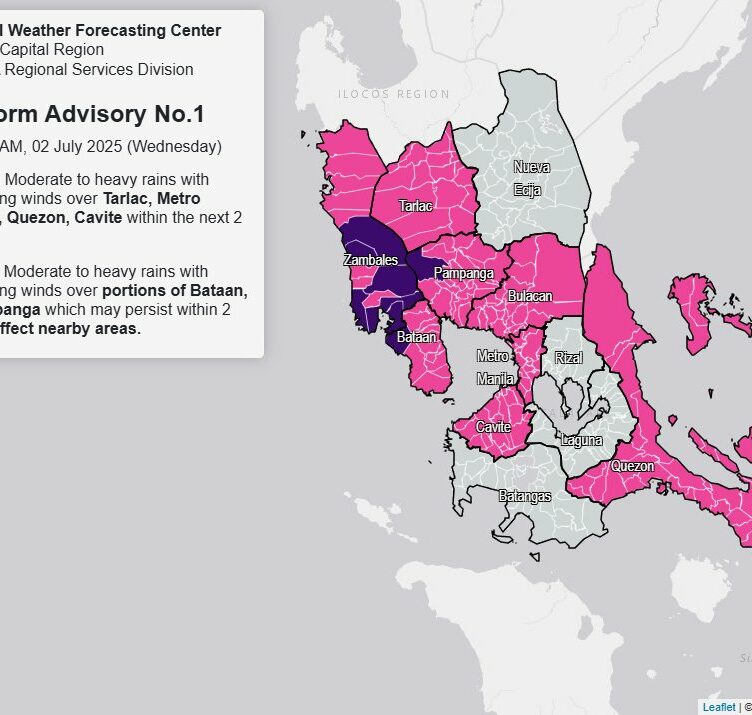WE USE the term “epal” so often when talking about boisterous classmates or annoying workmates, that not everyone realizes that it’s a term many apply to politics as well.
The term “epal” comes from “mapapel”, usually associated with people who try to bring attention to themselves.
It quickly became a buzzword in Philippine politics following Former President Benigno Aquino III’s creation of a shame campaign against “epals” in politics, referring to public officials who try to take credit for certain services or projects paid for anyway by taxpayers, not them.
Attempts to curb epals
At the time, there was even an “anti-epal” bill that was made, otherwise known as “An Act Prohibiting Public Officers from Claiming Credit through Signage Announcing a Public Works Project” or the “Anti-Signage of Public Works Act”. This was authored by the late Senator Miriam Defensor-Santiago.
Many other government officials have since tried to curb “epals” in politics, as well. In 2021, for example, Grace Poe included an “anti-epal” provision in the 2021 budget.
As per the Senate of the Philippines, she said: “Taxpayers, not politicians, fund the projects and programs. Their names or photos have no place there.”
She further noted that public constituents should refrain from making it appear that their constituents owe them for these projects. It is, after all, their job to do these things for the public, is it not?
The “anti-epal” provision added would prohibit any public official from attaching their name, appearance, logo, signature, or whatever else, on any programs, activities, projects, or signages funded under the General Appropriations Act (GAA).
Poe also called out politicians whose names and photos can be found on ambulances, waiting sheds, and even garbage cans.
To this, she said: “Tandaan natin: Hindi natin pera ito, pera ito ng ating mga kababayan.”
Other government offices such as the Department of Interior and Local Government (DILG) banned local government officials and politicians that acted as “epals” during payouts of national government programs, set in place in 2019.
Just this year, Mayor Vico Sotto also passed an “anti-epal” ordinance, which prohibits politicians from placing their names or images on public projects.
Despite these tries to limit “pa-epal” antics in politics, some continue to slip through and are particularly prevalent during the Holidays.
Out of the kindness of one’s heart… hopefully
During the holidays, we try our best to spend time with those who matter the most to us.
We go home and learn about what’s happening in the lives of our friends and families, and exchange gifts and laughter, making memories that we’re sure to never forget… all while surrounded by the big, smiling faces of politicians.
Every star that is hung, every Christmas tree lit up, every banner that reads “Merry Christmas” or “Happy Holidays” always has someone attached to it in some way, shape, or form.
There is no escaping them, either; if you go inside, you’re sure to see them on television or in ads online, anyway. What is once a holiday that is meant for rest and relaxation has quickly turned into, for lack of a more eloquent term, just another pissing contest.
Instead of fighting this phenomenon, many Filipinos have simply come to accept it, especially since they are aware that this is merely a part of the premature campaigning that many politicians partake in before the official campaign period starts in 2025.
Others, however, question how these “epals” continue to sneak through despite the number of acts and ordinances that have been put in place to keep them at bay.
In 2014, Miriam Defensor Santiago fought to see that the “anti-epal” bill, alongside many others, would be passed. Despite this, and the efforts of many others, those smiling faces are still all around.
And to an extent, yes it is understandable – the entire idea that any publicity is good publicity, even if that means stamping your face or your name on whatever you can get your hands on.
It helps to build recognition; if you are to see the same name over and over again, every single day, and you were to see it pop up on the ballot alongside a handful of other people you’ve never heard of, it’s pretty easy to guess who you’d choose from that lineup.
There is, however, the question of morality. What helps the masses more? Putting your face on works that you didn’t even pay for, or putting in the time and effort to create legislation aimed at helping people?
These people know your name, but do you know theirs? Do you know their concerns, their daily struggles? Do you know what they yearn for, what they fight for? Do you know them at all?
A big part of Christmas is telling your children to be good because Santa doesn’t give coal to naughty kids.
Perhaps, however, it isn’t just the children he should be looking out for.
Hopefully, in the holidays to come, the gift our country is given is a fair, clean, and credible election process focused on the needs of the masses above all else.
How useful was this post?
Click on a star to rate it!
Average rating 0 / 5. Vote count: 0
No votes so far! Be the first to rate this post.
We are sorry that this post was not useful for you!
Let us improve this post!
Tell us how we can improve this post?









